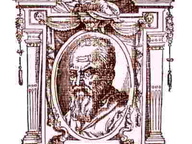Bunkering in Paradise. The Rest of Us Just Live it

Sebastian Lloyd Rees, 2014 (particolare). Courtesy of the artist
Dal 6 November 2014 al 12 November 2014
Torino
Luogo: Toolbox Coworking
Indirizzo: via Egeo 16
Orari: tutti i giorni 11-19
Curatori: Eugenio Re Rebaudengo
Telefono per informazioni: +44 (0)20 72651480
E-Mail info: info@artuner.com
Sito ufficiale: http://www.artuner.com
To bunker significa rifornire. Il termine descrive il processo di rifornimento delle navi al porto, un punto di incontro con la terraferma dal quale dipende il loro destino in mare. Che cosa significa allora “rifornirsi in paradiso”? La frase suggerisce la scelta di che cosa portare via dal paradiso, in qualunque forma o luogo lo si intenda. Ma suggerisce anche l’idea di partenza connessa a una distopia: dopotutto perché lasciare il paradiso?
In modi diversi Max Ruf, Sebastian Lloyd Rees e Adriano Costa si occupano tutti delle caratteristiche di determinati luoghi. I lavori in mostra interpretano questi luoghi, che siano essi beatitudine o inferno, come siti dalle specifiche coordinate, costellazioni di oggetti, processi e storie che, nelle loro configurazioni si caricano di significati sociali, economici e storici. Scavando le parti costituenti di un dato luogo, gli artisti ne estraggono, recuperano, rivelano e ri-rappresentano i residui, disegnando sui frammenti e sulle memorie, per coinvolgere e allo stesso tempo espandere la relazione tra lo spettatore e lo spazio.
Le tele e le registrazioni di Max Ruf rispecchiano lateralmente il genere tradizionale della pittura sur le motif. Una volta uscito all’esterno, il lavoro diventa palco e oggetto di un entusiasmo diretto a cogliere, apprendere, e lasciarsi alle spalle. Nel suo lavoro, le fenditure tra spazio e memoria sono riempite di qualcosa d’imprevedibile e casuale; Ruf adotta questa tattica per legare i suoi dipinti al luogo, nonostante essi mantengano una serie di possibilità aperte e suggestioni che rifiutano espropriazioni interpretative.
La negazione dell’intento autoriale è esemplificato dall’azione dell’artista nel premere i dipinti l’uno contro l’altro quando il colore è ancora fresco. Questa tecnica a farfalla (spesso eseguita nel retro del furgone di Ruf durante i suoi viaggi in campagna) descrive le condizioni di transizione e creazione del lavoro. L’immagine è costruita attraverso il passaggio da fase di produzione a fase di consumazione – essa parla di partenza e di arrivo, vicinanza e distanza, in un unico respiro.
Sebastian Lloyd Rees esplora i dimenticati spazi urbani dai quali preleva gli oggetti che poi ripresenta come opere d’arte. Lloyd Rees è sempre alla ricerca delle risorse nascoste dietro gli oggetti comuni, dai quali far fuoriuscire storie tramite interventi minimi. Ciò che Lloyd Rees recupera dalle strade è infatti già di per sé rivelatore; l’appropriazione di tutto ciò che è stato inutilizzato e sprecato – un insegna della Budweiser, una porta, un cartellone pubblicitario – spinge l’aspetto narrativo latente ad essere interrogato in continuazione. Come opere d’arte, questi oggetti diventano protagonisti di una riflessione sull’aspetto sociale, politico e culturale legato alla loro produzione, consumazione e obsolescenza.
Gran parte del lavoro realizzato da Lloyd Rees fino ad oggi può essere letto come una prosa immaginaria ma precisa. Nonostante ciò, ci sono momenti, in particolare nei lavori con le porte (Untitled, 2014), in cui l’artista si orienta verso gli stessi versi lirici dei quali Adriano Costa è così esperto. Il lavoro di Costa è sempre stato rivolto a una composizione poetica che enfatizza la narrativa dall’oggetto. Le sue composizioni sono spesso piene di un tranquillo, a volte assurdo, pathos. Questa sua capacità sensibile procura una certa continuità tra i lavori scultorei, e bidimensionali, e le performance che Costa presenta in questa mostra. POPCORNPINGPONGPAINTINGS testimonia che Costa è un drammaturgo, motivo per cui tragedia e commedia convivono nello stesso lavoro con così poca incongruenza. La poesia è spesso usata come mezzo per scappare dalla politica, ma Costa è in grado di usare le persone come termine medio tra le prime due, a prova della sua perfetta conoscenza degli oggetti.
In modi diversi Max Ruf, Sebastian Lloyd Rees e Adriano Costa si occupano tutti delle caratteristiche di determinati luoghi. I lavori in mostra interpretano questi luoghi, che siano essi beatitudine o inferno, come siti dalle specifiche coordinate, costellazioni di oggetti, processi e storie che, nelle loro configurazioni si caricano di significati sociali, economici e storici. Scavando le parti costituenti di un dato luogo, gli artisti ne estraggono, recuperano, rivelano e ri-rappresentano i residui, disegnando sui frammenti e sulle memorie, per coinvolgere e allo stesso tempo espandere la relazione tra lo spettatore e lo spazio.
Le tele e le registrazioni di Max Ruf rispecchiano lateralmente il genere tradizionale della pittura sur le motif. Una volta uscito all’esterno, il lavoro diventa palco e oggetto di un entusiasmo diretto a cogliere, apprendere, e lasciarsi alle spalle. Nel suo lavoro, le fenditure tra spazio e memoria sono riempite di qualcosa d’imprevedibile e casuale; Ruf adotta questa tattica per legare i suoi dipinti al luogo, nonostante essi mantengano una serie di possibilità aperte e suggestioni che rifiutano espropriazioni interpretative.
La negazione dell’intento autoriale è esemplificato dall’azione dell’artista nel premere i dipinti l’uno contro l’altro quando il colore è ancora fresco. Questa tecnica a farfalla (spesso eseguita nel retro del furgone di Ruf durante i suoi viaggi in campagna) descrive le condizioni di transizione e creazione del lavoro. L’immagine è costruita attraverso il passaggio da fase di produzione a fase di consumazione – essa parla di partenza e di arrivo, vicinanza e distanza, in un unico respiro.
Sebastian Lloyd Rees esplora i dimenticati spazi urbani dai quali preleva gli oggetti che poi ripresenta come opere d’arte. Lloyd Rees è sempre alla ricerca delle risorse nascoste dietro gli oggetti comuni, dai quali far fuoriuscire storie tramite interventi minimi. Ciò che Lloyd Rees recupera dalle strade è infatti già di per sé rivelatore; l’appropriazione di tutto ciò che è stato inutilizzato e sprecato – un insegna della Budweiser, una porta, un cartellone pubblicitario – spinge l’aspetto narrativo latente ad essere interrogato in continuazione. Come opere d’arte, questi oggetti diventano protagonisti di una riflessione sull’aspetto sociale, politico e culturale legato alla loro produzione, consumazione e obsolescenza.
Gran parte del lavoro realizzato da Lloyd Rees fino ad oggi può essere letto come una prosa immaginaria ma precisa. Nonostante ciò, ci sono momenti, in particolare nei lavori con le porte (Untitled, 2014), in cui l’artista si orienta verso gli stessi versi lirici dei quali Adriano Costa è così esperto. Il lavoro di Costa è sempre stato rivolto a una composizione poetica che enfatizza la narrativa dall’oggetto. Le sue composizioni sono spesso piene di un tranquillo, a volte assurdo, pathos. Questa sua capacità sensibile procura una certa continuità tra i lavori scultorei, e bidimensionali, e le performance che Costa presenta in questa mostra. POPCORNPINGPONGPAINTINGS testimonia che Costa è un drammaturgo, motivo per cui tragedia e commedia convivono nello stesso lavoro con così poca incongruenza. La poesia è spesso usata come mezzo per scappare dalla politica, ma Costa è in grado di usare le persone come termine medio tra le prime due, a prova della sua perfetta conoscenza degli oggetti.
SCARICA IL COMUNICATO IN PDF
COMMENTI

-
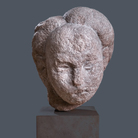 Dal 20 February 2026 al 19 July 2026
Roma | Mercati di Traiano Museo dei Fori Imperiali
Dal 20 February 2026 al 19 July 2026
Roma | Mercati di Traiano Museo dei Fori Imperiali
Constantin Brâncuși. Le origini dell’Infinito
-
 Dal 18 February 2026 al 19 July 2026
Padova | Centro Culturale Altinate | San Gaetano
Dal 18 February 2026 al 19 July 2026
Padova | Centro Culturale Altinate | San Gaetano
M.C. ESCHER. Tutti i capolavori
-
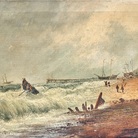 Dal 14 February 2026 al 31 May 2026
Parma | Palazzo Tarasconi
Dal 14 February 2026 al 31 May 2026
Parma | Palazzo Tarasconi
Impressionisti: 100 anni di riflessi. Gli Impressionisti da Monet a Bonnard
-
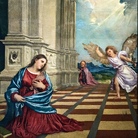 Dal 14 February 2026 al 16 April 2026
Ancona | Pinacoteca Civica Francesco Podesti
Dal 14 February 2026 al 16 April 2026
Ancona | Pinacoteca Civica Francesco Podesti
TIZIANO VECELLIO E LORENZO LOTTO. Due capolavori del Rinascimento alla Pinacoteca Civica di Ancona per due mostre studio
-
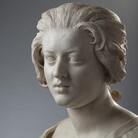 Dal 12 February 2026 al 14 June 2026
Roma | Galleria Nazionale d’Arte Antica in Palazzo Barberini
Dal 12 February 2026 al 14 June 2026
Roma | Galleria Nazionale d’Arte Antica in Palazzo Barberini
BERNINI E I BARBERINI
-
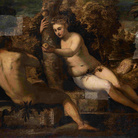 Dal 11 February 2026 al 7 June 2026
Venezia | Gallerie dell’Accademia
Dal 11 February 2026 al 7 June 2026
Venezia | Gallerie dell’Accademia
Tintoretto racconta la genesi. Ricerca, analisi e restauro
